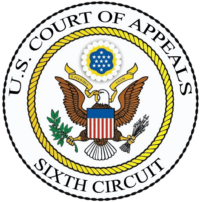Originally published on Forbes.com Feb 19th, 2014
Tax season is starting to put me behind in my blogging. That’s something that happens to CPAs. Somehow, I don’t think tax season had a lot to do with the delay that Harry Jones CPA had in getting around to his trial for tax evasion. He was sentenced last May to twelve months in prison and one year of supervised release.
Jones pleaded guilty on August 9, 2012 to filing a false federal income tax return. According to court documents, Jones, a certified public accountant, filed a false federal income tax return for 1997 with the IRS, listing his income for that year as $14,153, when the actual amount was higher. Jones performed bookkeeping services for a firm and retained $268,252 in gross profit for his services. In addition, Jones received the amount of $282,671 for factoring gross receipts for another company. Therefore, the total amount of income Jones failed to report on his 1997 federal income tax return was $550,923.
Note the gap of around 14 years between the bad return and the guilty plea. Mr. Jones was in the sixth circuit appealing his conviction. He had, unbeknownst to him, been indicted on October 14, 2004. He was arrested on October 29, 2010. He filed a motion to have the indictment dismissed based on not having a “speedy trial”.
So why was it that there was over six years between his indictment and his arrest? The Government could not find him. They were trying to an extent.
Based upon affidavits from an IRS special agent and a deputy U.S. Marshal, the court found that the government did not know where Jones was located after 1999 and had no information or leads as to his whereabouts until he was arrested. The court also found that the government exercised reasonable diligence in discharging its duty to bring Jones to trial by continually posting his arrest warrant with the NCIC, one of the only options available given that Jones’s location was unknown.
The warrant with the National Crime Information Center finally paid off.
On October 29, 2010—six years and two weeks after he was indicted—authorities arrested Jones in the Western District of New York as he was entering the country from Canada. His arrest was based upon the warrant in the NCIC, which had been continually posted with the service since 2005.
The long delay is the basis of the appeal.
In his motion, Jones claimed that the government violated his speedy-trial right because it took “no action” in his case during the six years and two weeks between his indictment and arrest. The government responded that it did not know where Jones was located during that time and had no information as to his whereabouts until his arrest. After hearing oral argument, the district court denied Jones’s motion in a written opinion.
Jones subsequently entered a conditional guilty plea to filing a false return for tax year 1997, reserving the right to appeal the denial of his motion to dismiss.
Mr. Jones argued that the delay hurt his defense because over that period he lost:
(1) certain “working papers,” records of a reconciliation of his trust account related to a complex transaction to sell his accounting practice; (2) records of a civil case in which he was a defendant; and (3) bank account records of a disbarred attorney.
The district court had ruled that Mr. Jones had not been able to demonstrate how those documents would have helped with his defense particularly considering all the evidence that there was against him:
Moreover, an entire universe of evidence that was available regarding Jones’s guilt undermines his claim that he has suffered substantial prejudice from the lost records. For example, Jones collected “substantial income” in 1998 and 1999 from investments in brokerage accounts, precious metals, and insurance policies, yet he did not file tax returns for those years. The missing records would not help Jones defend against the tax evasion charges for those years because the records have nothing do with those three sources of income.
I’ve been trying to figure out if this case is like the kid who murdered his parents and asked the court to have mercy on him because he was an orphan. The decision does not indicate that Mr. Jones was in hiding, just that the government could not find him. Mr. Jones has requested an “en banc” hearing.
I took a look at the original motion to dismiss where Mr. Jones cites several of the things that he did that should have made him easy to find. They included getting treatment at a veterans hospital, applying for CPA and insurance licenses, flying, and getting a passport and driver’s license. What is interesting though is that the exhibits are mostly dated around 2009. So does that mean that he was trying to resurface thinking that the coast had become clear?
Apparently, there were rumors and unconfirmed reports that he was in the Caribbean at the time of his indictment. Does someone roaming around the Caribbean doing the romantic stuff they do down there, end up with a yearning to return to Ohio and resume working in public accounting and selling insurance? Seems like the stuff of an inspirational family drama or perhaps a sitcom. Hopefully, the en banc hearing will be granted and we will learn more.
You can follow me on twitter @peterreillycpa.
































































































Trackbacks/Pingbacks